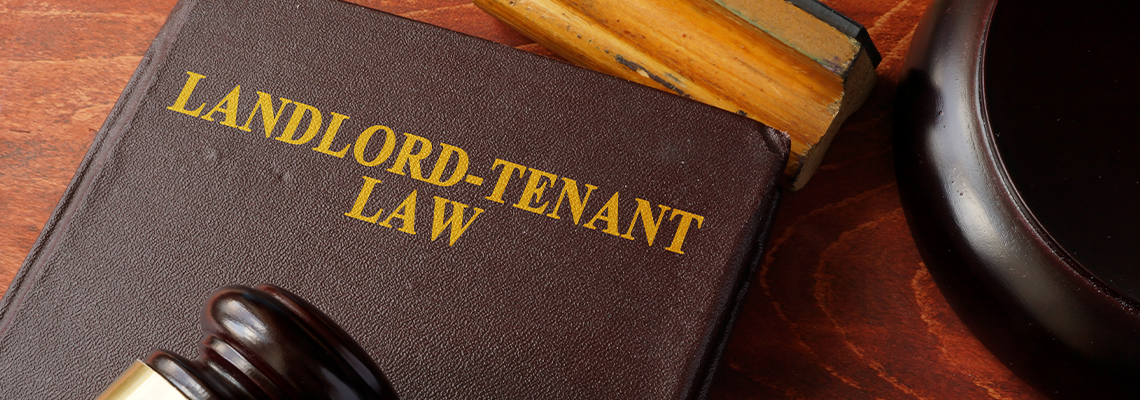
Tenant Landlord Laws in Pennsylvania
Pittsburgh has, according to statistics, a sum of 74,876 rental units. At 37 percent, most of them are one-bedroom. The average rental price as of October 2022 was $1,426 a month, a rise of 6.3 percent year over year. Rental market costs, though lower than the national average, have still tended to follow nationwide trends in climbing higher following the onset of the pandemic.
Both landlords and tenants are bound by federal and state laws in their rights and obligations. A misunderstanding of these laws can sometimes lead to disputes that make it uncomfortable in the relationship between the two. Repairs, the return of deposits, terminating or extending a lease, noisy neighbors – all these issues, and more can strain the relationship and even raise legal issues.
If you’re a tenant or a landlord in or around Pittsburgh and a dispute is causing ripples that strain the relationship, contact Marc V. Taiani, Esquire and Allegheny Attorneys at Law, P.C. for legal assistance. I am an attorney experienced in landlord-tenant laws in Pennsylvania and can help you resolve whatever dispute is disrupting the landlord-tenant relationship.
I also proudly serve clients throughout Allegheny County and all of the surrounding counties, including Butler, Westmoreland, Beaver, Armstrong, and Washington, Pennsylvania.
Laws Governing Rentals
On the federal level, the Fair Housing Act of 1968 prohibits discrimination in renting based on an applicant’s color, disability, family status, national origin, religion, race, or sex. In Pennsylvania, it is also illegal to discriminate based on age. Some cities and municipalities also forbid discrimination based on gender identity or sexual orientation.
The Fair Housing Act also extends to advertising for a rental. For instance, you cannot specify “no children” in an ad. Also, if the rental unit was constructed before 1978 and used lead paint, federal law requires disclosure of the presence of lead paint.
In Pennsylvania, the Landlord and Tenant Act of 1951 spells out the rights and obligations of both parties. The act covers everything from leases to rent payments to cable television access to repairs, maintenance, and much more.
Security Deposits, Credit Checks, and Rent
A landlord is allowed to charge a security deposit of up to two months during the first year of tenancy. After two years, the landlord is allowed to hold only one month’s rent as security and must pay interest on the deposit being held. When a tenant moves out, the landlord must return the security deposit within 30 days. If any portion is withheld for repairs, past-due rent, or breach of lease, the landlord must notify the tenant of the reason.
A landlord can use a credit check in determining if an applicant is creditworthy. However, under terms of the federal Fair Credit Reporting Act, the landlord must request the applicant’s permission to do so. The act also requires that any adverse decision be spelled out for the applicant and that the applicant be allowed to dispute the information on which the decision was based.
On a lease of 12 months or longer, a rental or lease agreement in writing is required. The agreement should spell out the term of the lease, the rental due date, penalties for late payment, the landlord’s responsibilities, the tenant’s responsibilities, and more.
Tenant Rights During Occupancy
Two major rights for a tenant in Pennsylvania are the right to quiet enjoyment and the right to a safe and habitable home. Under the right to quiet enjoyment, the landlord cannot enter the unit whenever they want to. The law requires that notice be given. Though the time period is not spelled out, it is generally considered that 24 hours' notice is the minimum.
Under the right to a safe and habitable home, a landlord cannot force a tenant to move into a home or unit “as-is” and cannot demand that the tenant be responsible for repairs. To be safe, and habitable, a unit or home should have:
Working smoke alarms
Working hot water
Drinking water
Heat
Adequate waste disposal and sewage
Functioning/locking windows and doors
Functioning bathroom(s)
Tenant Rights If Something Is Wrong
If there is something wrong with the rental unit, the tenant should notify the landlord and give the landlord a reasonable opportunity to fix the problem. If the landlord fails to make the repair, the tenant has the right to “fix and deduct,” in other words, make the repair and deduct the amount from rent, but you should notify the landlord that that is what you intend to do.
Some tenants believe they can withhold rent altogether if a problem goes unfixed, but that is only possible if a housing inspector declares the unit to be uninhabitable. You cannot simply withhold rent on your own.
Tenant Rights at the End of the Lease
As detailed earlier, the landlord must return the security deposit within 30 days of a tenant’s vacating the unit. Also, if a landlord decides not to renew a particular tenant’s lease, the landlord is required to give advance notice. If the lease is month to month or under a year in length, the landlord must give at least 15 days’ notice. For longer leases, the notification period is 30 days in advance.
Get Trusted Legal Representation
It’s not unusual for disputes to occur between tenants and landlords. Both have rights – and obligations – under federal and state law. If a rental dispute gets out of hand in or around Pittsburgh, contact Marc V. Taiani, Esquire and Allegheny Attorneys at Law, P.C. for legal help. I will review the situation with you and detail your legal options. I will then represent you aggressively to protect your rights and reach the best available solution
